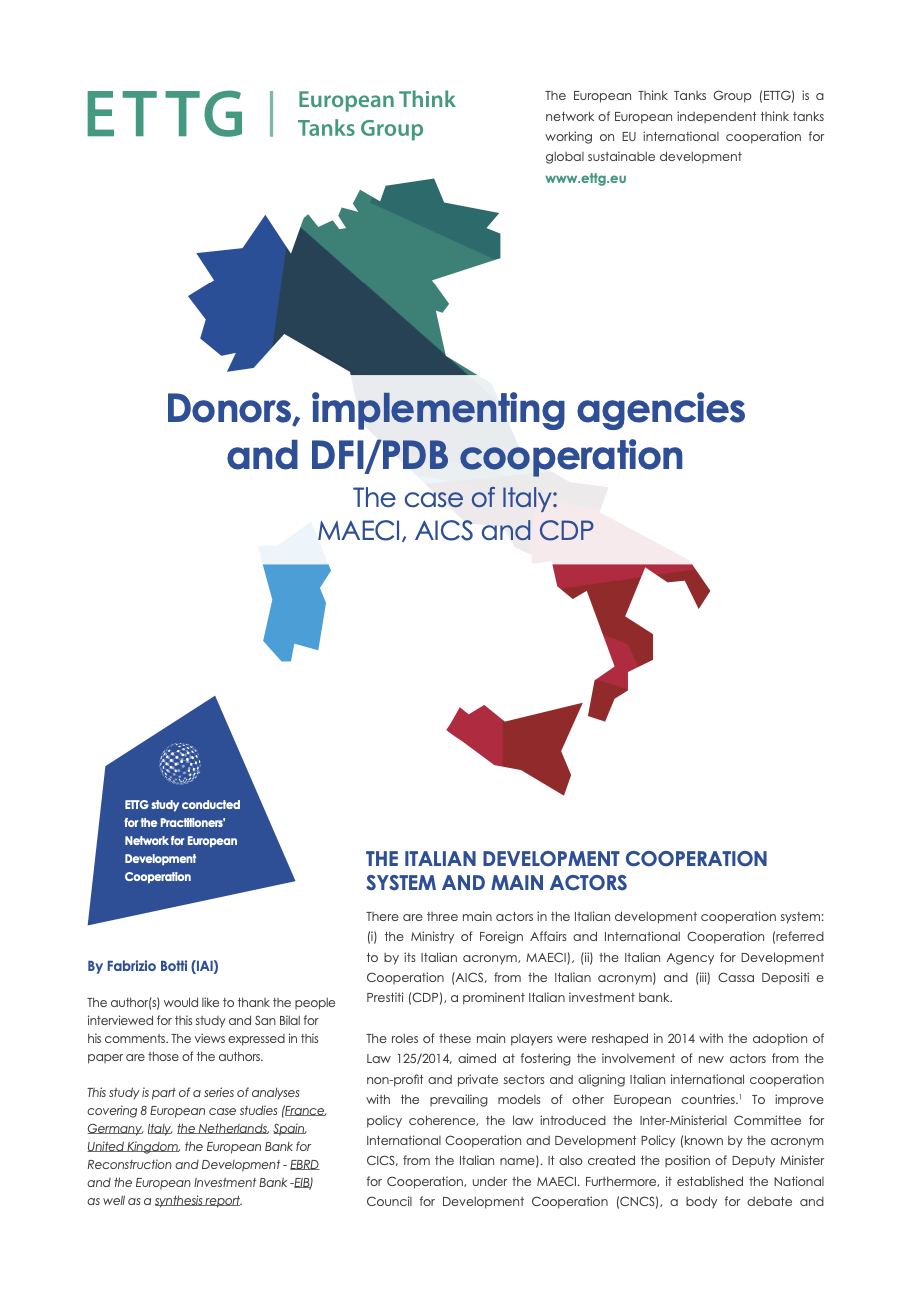
There are three main actors in the Italian development cooperation system: (i) the Ministry of Foreign Affairs and International Cooperation (referred to by its Italian acronym, MAECI), (ii) the Italian Agency for Development Cooperation (AICS, from the Italian acronym) and (iii) Cassa Depositi e Prestiti (CDP), a prominent Italian investment bank.
The roles of these main players were reshaped in 2014 with the adoption of Law 125/2014, aimed at fostering the involvement of new actors from the non-profit and private sectors and aligning Italian international cooperation with the prevailing models of other European countries.1 To improve policy coherence, the law introduced the Inter-Ministerial Committee for International Cooperation and Development Policy (known by the acronym CICS, from the Italian name). It also created the position of Deputy Minister for Cooperation, under the MAECI. Furthermore, it established the National Council for Development Cooperation (CNCS), a body for debate and consultation among public and private, commercial and non-profit stakeholders operating in the sphere of international development cooperation.
Read the Italian case study here.
Author: Fabrizio Botti (IAI)
The author would like to thank the people interviewed for this study and San Bilal for his comments.
ETTG study conducted for the Practitioners’ Network for European Development Cooperation.
This study is part of a series of analyses covering 8 European case studies (Germany, France, the Netherlands, United Kingdom, Spain, Italy, the European Investment Bank -EIB and the European Bank for Reconstruction Development – EBRD) as well as a synthesis report.
Presentation of the analysis report here.
Photo by Jonathan Bean on Unsplash.
The views are those of the authors and not necessarily those of ETTG.




